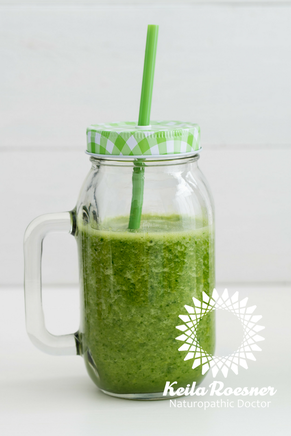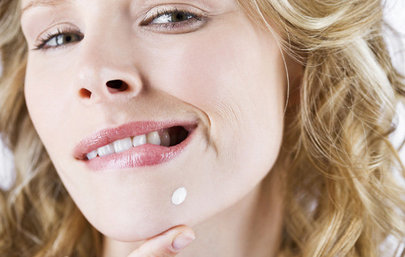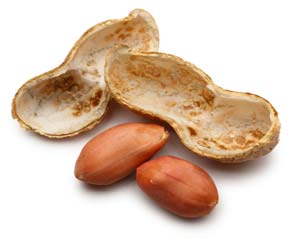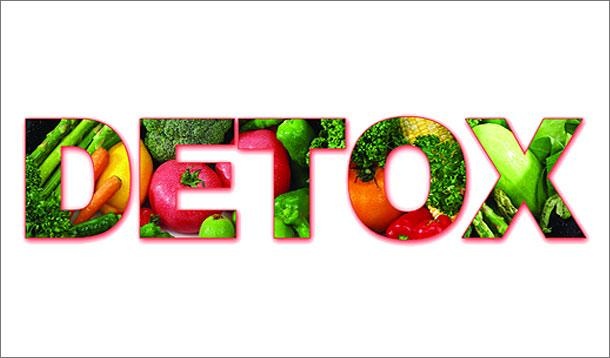 Your body is ALWAYS trying to communicate with you. The problem is that most of us get so busy that we forget how to listen… so our body needs to scream to get us to pay attention. I hear it all the time. “But Dr. Keila, I’m pretty healthy..”! Meanwhile, you may be taking a few prescription medications to control your blood pressure, thyroid and that random rash that comes and goes. TUMS are in your medicine cabinet and you carry Tylenol in your purse all the time. But that’s all normal, right? Nope. Not at all. There is a BIG difference between common and normal. Common is taking a few prescription medications, having digestive issues and bad knees. Normal is having a good night’s rest, waking with energy and not requiring caffeine. Normal is being able to eat food without feeling awful afterwards, and almost never getting heartburn or headaches. Big difference. Sometimes our body needs a reset. To clear the clutter and figure out what actually is going on. Here are 10 major signs your body is not functioning “normally” (even though they may be common!).
A good detox should help you address all of these things. It is not meant to “fix” things, but to help your body reset and tune out some of the noise so that you can actually figure out what the heck is going on. Do any of these sound like you? Comment below! If you are tired of these common, but definitely NOT normal signs, here’s three free you can do:
If you found this article interesting please share. In health,
0 Comments
 Every spring and fall, I get clients asking me about doing some kind of “I need to cleanse but not the kind where you run to the bathroom all the time” because they are feeling the effects of over-eating and over-scheduling. I always get a chuckle out of that. It’s hard to spend any time online without coming across some celebrity’s secret weight loss plan or miracle 48 hour juice program to drop 3 dress sizes before the weekend. Most of it is crap. After enough time spent reading headlines in the grocery store line, it’s easy to think that doing one of these is either essential or something to be avoided at all times because we saw a news thing on it once and it didn’t work. Never any in between. But what if you are not feeling so great, want to re-set but don’t want to get caught up in hype or do something dangerous? It’s crucial to know the difference. A cleanse usually describes a short term program where foods are restricted and fluids are encouraged. For example, there is the Master Cleanse which involves fasting apart from lemon juice, maple syrup and cayenne. It also involves diarrhea. Other versions might include only fresh-pressed juices or water or broth. The general idea is to give your digestive system a break to flush out the digestive system. We target the large intestine in particular so there is often a focus on having bowel movements. Lots of them. A detox program typically focuses on helping the body to process things more efficiently while putting less garbage in. This might include staying away from problematic-at-times foods like wheat, dairy, alcohol and caffeine while increasing healthier foods like greens, fresh lemons and lean proteins. Herbal supplements are often used in addition to help the body get things going. This typically will involve helping the liver, kidneys, intestines, lungs and skin to work more efficiently. There is often a focus on resting, and gentle exercise. So which one is better? It depends on what you’re looking for! As a Naturopathic Doctor, I tend to be pretty wary of cleanses, particularly if they are not supervised medically. That being said, there is some pretty good evidence out for therapeutic fasting with some conditions. Juices can equal a lot of sugar and may actually stress the liver and contribute to blood sugar issues. And again, diarrhea isn’t fun. Detoxes are not all created equal either. "Detox herbs", and products picked up off health food store shelves can be helpful for some people and make others feel awful. I often think this is due mainly to not eating crap food for a period of time. Sometimes herbs can be a big help but again, this totally depends on your health, any medications you are taking and how stressed out you are. I am generally in favor of giving the body a break periodically by eating well, resting and moving. The specifics are highly dependent on your goals. In my next blog, we will talk about how to start with a good detox and when you should do one. If you are looking to re-set and would like a program tailored to YOU, let's talk. In health,  "Dr. K, I'm doing great... except that I want to scratch my eyes out, my nose keeps running and I'm going to start charging that frog in my throat rent!" lamented one of my patients this week. And she isn't alone. Seasonal allergies affect 1 in 25 Canadians, according to the Canadian Allergy, Asthma and Immunology Foundation. Allergic rhinitis, or "hay fever", or these damn allergies can present as watery itchy eyes, runny nose with clear mucous, sinus congestion and pressure, itchy tongue and palate, a dry scratchy throat, feeling fatigued, poor concentration. This means lower productivity at work, an increased risk of asthma and an expensive trip to the pharmacy or health food store trying to find relief. Windsor and Toronto are some of the worse cities in Canada to live in with respect to pollution and ragweed. Here in Stratford, we are surrounded by a lot of farmland and trees, which also translates to pesticides and tree pollen. Despite being convenient for travel, this Highway 401 corridor that I and my patients call home can cause some decided health issues from early spring until late fall. So what's an allergy sufferer to do? 1. Catch the culprit Most seasonal type allergies are IgE-mediated immune reactions. A simple skin or blood test can be ordered by your family doctor or Naturopathic Doctor to determine the cause of your symptoms. Common culprits are tree pollens, ragweed, moulds, and dust mites. These can be made worse by certain foods, particularly food sensitivities. 2. Support your immune system Eat a diet high in fresh fruits and vegetables for lots of Vitamin C, good quality probiotics recommended by your health care provider, fermented foods like kombucha, sauerkraut or kefir, and healthy fats. Minimize sugars, processed foods and alcohol as they will suppress your immune function and can contribute to mucous production. 3. Create a customized plan Your family doctor or allergist might also recommend avoiding the allergen if possible, antihistamines or decongestants. Please be aware that decongestant nasal sprays often cause rebound congestion once you discontinue their use, so these should only be used short-term. In my practice, I recommend an individualized supplement program including homeopathics, and nutraceuticals, dietary support and at-home care. I like to recommend using a neti pot filled with a warm sterile saline solution to rinse out the sinuses twice daily during allergy season. It really works! BONUS I also recommend Allergy Booster "shots" preventatively for patients that predictably experience symptoms at this time of year. A simple, low-cost oral solution that can help to improve our immune function and reduce the severity, this is one of my favorite ways to stay on top of allergies. Many of my patients have experienced a dramatic improvement in their allergy symptoms after only a few doses and no longer need to rely on allergy medication. If you or your loved ones are suffering from seasonal allergies, you can book a free 15 minute health strategy session to learn more about treating your allergies.. naturally. In health, Dr. Keila
Food can be the perfect medicine... or the best poison.Our body does the best it can and can only run off the fuel we give it. While most of us try to eat healthily the majority of the time, sometimes the "good" foods we are regularly recommended can make us feel ill. If we are taking in foods that don't agree with us, regardless of which Food Guide or expert recommends them, our body will mount a reaction in order to tell us that we shouldn't eat it. If we continue to consume these foods, the body turns up the dial until we have to listen. Your Cheat Sheet to Food Reactions:
Timing is everythingOne reason it can be so difficult to identify a food reaction is that we may react hours, days or even weeks after ingesting the food in question. If you tend to eat a highly varied diet or eat the same foods over and over, pin-pointing that one meal can be a challenge, particularly if you started to feel crummy a few days later. Trust your gut..but look for other clues.The gut is the gateway to the rest of the body. If a food reacts in our gut, it impacts not only our digestive function, but the rest of our body as well. In particular, the immune system, neurological and reproductive systems get involved. Symptoms of a food sensitivity can include:
Your symptoms may evolve over time as well. For example, I notice with myself that when I eat gluten I start to feel very sleepy and have an immediate-onset brain fog. If I continue to ignore my body and eat more - I am the first to admit I am very human and not immune to a fresh slice of bread from time to time - I get some pretty intense stomach cramps and constipation. Since I so seldom eat it, I notice this right away. When I was in university on a tight student's budget, I tended to a lot of pasta (it was cheap, quick and filling) I suffered from debilitating sleep attacks plus all those digestive symptoms, weight gain around the middle and acne. Eventually I realized from trial and error that it was worth spending a few extra bucks, saving the gluten/starch binges for a very occasional treat in order to be more productive, focused, energetic and healthy. As you can see, it certainly goes beyond the digestive system! So how do I know if there's a problem... and what can I do about it?If you're asking yourself this, you've come to the right place!
Working with your family doctor or allergist, standard allergy testing is often recommended to test for IgE-type reactions. Treatment then involves taking an antihistamine (Reactine, Benedryl etc.), epinephrine (eg. carrying an Epi-pen) and/or complete avoidance. However, by now you will realize that IgE reactions are just a small part of the picture. Here is how I treat food reactions:
If you or someone you know is suspects that a food reaction might be contributing to feeling unwell, I would like to offer you a complimentary 15 minute consultation with me to discuss your concerns.  http://vipmobiledayspa.wordpress.com/2013/06/28/super-foods-that-fight-acne/ http://vipmobiledayspa.wordpress.com/2013/06/28/super-foods-that-fight-acne/ Ugh. 7 am. There's a bright red, angry monster that somehow took up residence on your chin overnight and is now staring back at you in the mirror. The beast hurts when you touch it. It is also probably giving you the stink-eye, just in time for your incredibly important interview. I've been there too. As a teen I had acne so bad it covered my face, chest and back. I went through years of antibiotic creams, washes, birth control pills that I never wanted, and Proactive facial care systems that stained all of my mother's towels. I was even on Accutane for two years. A high dose pharmaceutical variation on Vitamin A, Isotretinoin or Accutane, is commonly prescribed for severe cystic acne. While it is known teratogen (meaning that it is known to cause severe birth defects), a less common side effect of the drug is anxiety, depression and even suicidality. Fun times for me, when both me and my high school boyfriend were taking long courses of Accutane. It worked, however it was a pretty dark time and I'm lucky my family was so patient with me. It has since been taken off the market in Canada due to a possible link between use and Inflammatory Bowel Disease. Yikes! Acne vulgaris (the medical, even uglier sounding term) can be caused by a number of concerns, including: Hormonal imbalances - excess testosterone, or excess estrogen, PCOS, puberty, pregnancy/post-partum, menopause hormonal changes Food sensitivities - dairy, gluten, eggs are the most common although there are many other possible culprits, sugar, preservatives Digestive Weakness - low stomach acidity, excess protein (often from conventionally raised animals whose meat is pro-inflammatory and hormone-laden), poor gut flora, recent antibiotic use Medications - corticosteroids, oral contraceptives, anabolic steroids Allergies - cosmetics, chemicals, fragrances, clothing material, detergent Stress - lack of sleep, stress hormones in overdrive, less-than-scrupulous (or overly vigorous) hygiene But I'm not a teenager anymore! While it can be pretty devastating dealing with acne as a teen, most of us grow out of it. However, some people have acne lasting well into their 30's and 40's. Many others are suddenly faced with some angry crops of acne as adults. Several women I see with adult acne struggle to be taken seriously in their professional lives while feeling that that they look like a kid. Acne is not uncommon in the body-building world either, as anabolic steroids, sweaty work-out cloths and high amounts of whey protein powders can contribute to facial and b-acne. In these cases, look to food sensitivities and other environmental factors. Another form of adult acne, Rosaceae, is often related to low stomach acid or or food sensitivities. So what can I do for my adult acne? 1. Ditch the chemical laden products - Check out EWG's Skin Deep Cosmetic Database to determine if your cosmetics and personal care products could be contributing to your symptoms. Pay particular to expensive high-end brands - many of them have some particularly nasty ingredients. 2. Switch to raw honey as a facial cleanser. Full of good bacteria, honey acts as a skin normalizer for both oily and dry skin and promotes healing. 3. a) Limit sugar, dairy and processed foods. Low glycemic diet and acne (American Journal of Clinical Nutrition, 2007), Acne: the role of medical nutrition therapy (Journal of the Academy of Nutrition and Dietetics, 2013) b) Clean up your diet. Focus on lots of orange and yellow fruits and vegetables like carrots, winter squash, and pumpkin as they contain beta-carotene to help improve skin health. Leafy greens such as dandelion, beet greens, spinach, kale, chard, water cress, blue-green algae (spirulina, seaweeds) tonify the liver to help balance hormones. Mung beans, adzuki beans, unpeeled cucumber slices, alfalfa and soy sprouts are all used in Traditional Chinese Medicine for the treatment of acne as well. 4. Drink lots of water and green tea. Your kidneys and liver filter toxins out of your body - staying well hydrated assists this function. 5. Adopt a regular stress management practice. Acne is associated with lower self-esteem, higher and rates of depression - Understanding the burden of adult female acne (Journal of Aesthetic and Clinical Dermatology, 2014). Yoga, deep breathing, and exercise can be helpful for confidence breathing, handling stress and improving your quality of life. Check out Jean's story... this is a great example of how naturopathic medicine can help treat adult acne with amazing results! Naturopathic approaches to acne involve removing food sensitivities, creating a tailored supplement protocol, stress management exercises and hormonal support as needed to help resolve current acne, minimize scarring and reduce the occurrence of future outbreaks. If you are struggling with acne - whether you are a teen or a grandmother or anywhere in between - let's set up a time to chat. Here's to your clear skin! Dr. Keila It's January. And it's really cold outside. For most of us, myself included, this means wanting to hibernate inside and procrastinating shoveling. This is also the time where we might begin reflecting on our New Year's Resolutions. In my last blog post I shared with you that my goal is to be truer to myself. In keeping with that theme, when I heard the CBC Marketplace's "Detox" special was being aired I got a little excited. And then, frustrated at the blanket "detoxes do not work" approach. Finally, I felt like shoving forks into my eyes in exasperation over the picky eating, sugar guzzling and misinformation. So instead of fuming about this in the privacy of my own home, I decided to review my thoughts (hopefully calmly and collectedly) for you in this - my first attempt at a Video Blog.. Enjoy! My general thoughts are on detoxes are this:
1. We need to examine WHY we think we need to detox. Do you feel that your body is inherently "dirty" and in need of cleaning? Are you unsatisfied with your health/energy/weight/self-esteem/sex life and feel that you need a change? Have you been watching Dr. Oz lately? 2. There are different kinds of "detoxes" and they are not necessarily safe, appropriate, cost-effective or useful for everyone. Many over-the-counter products act as laxatives. Sometimes this is the only thing that they do. While it is true that we need healthy organs of elimination to remove run-of-the-mill toxins and excess hormones from our bodies, making you go Number 2 a lot isn't the only way of doing this. Nor is it getting at the heart why you are constipated in the first place. In fact, laxative abuse and over-use are a leading cause of malabsorption, sluggish colon activity, diarrhea and abdominal pain. Raw diets and juicing cleanses are also popular, and although they can be effective for some people, I am a firm believer in the Traditional Chinese Medicine school of thought wherein we should be eating according to the seasons. When it is this cold outside, it is simply too taxing on the body to be digesting that much raw food. Dr. Oz's 48 Hour Cleanse is not inherently bad, I just don't think that 48 hours of eating a clean diet is enough for someone that is likely eating poorly in the first place. In fact, the recipes are similar to something that I would recommend, but I think the claims are grossly over-inflated. The best form of "detox-ing" is not needing to detox ie. eating a clean diet, exercising, allowing time for self-care, making stress management a priority. 3. A "detox" should not be a one-stop shop for your health care. True wellness is about achieving balance physically, emotionally, spiritually, socially. A detox will never be effective if you are following an unhealthy lifestyle (irregular sleeping and eating patterns, too much sugar, alcohol, caffeine, not enough exercise, negative/self-destructive thought patterns), do the program for 2 or 5 or 30 days etc. and then go back to the habits that are making you sick in the first place. As I mentioned in the video, doing an appropriate detox as a kick-start to healthier habits that you will be maintaining long-term makes much more sense than saying "I did my detox, I'm healthy for the year!". 4. A "detox" is not suitable for everyone. Sometimes I see patients that say they felt great after doing a detox. If part of the program is eliminated sugar, refined carbohydrates, alcohol and eating lots of fresh healthy foods, doing yoga or walking etc., I'd say we are on the right track. Again, sustainable changes. However, I also see a proportion of people that say they've never felt worse during or after. This is because many toxins such as mercury, lead, DDT, bisphenol A, parabens and plastics are fat soluble. Once we start to mobilize these bad boys at an accelerated rate via sweating, supplements, fast weight loss, we have an increased amount circulating in the blood stream. Whereas before, there were tucked away in our fat cells (lovely picture, isn't it?), now they are free to run around and make us feel nasty. This is why I almost never recommend a harsh detox for someone suffering from chronic conditions like chronic fatigue syndrome, fibromyalgia, SLE (lupus), rheumatoid arthritis, pain, cancer, or heart disease. It's too much too fast for someone already burdened by pain and low energy. 5. A good therapeutic "detox" works at stimulating your body's routes of elimination (skin, sweat glands, kidneys, bowel, lymphatic system and liver) so that your body does the work, not the product. A tailored therapeutic detox will discuss healthy eating, exercise, stress management, emotional health, at-home self-care and perhaps some good-quality supplements specific for your needs. As I've outlined my Top 5 Tips for At-Home Detox in the video, I will finish by say that under-taking a therapeutic detox - which definitely differs from an over-the-counter program should be taken under the guidance of a licensed and knowledgeable health professional, at the right time of year, and should be appropriate for your health concerns and goals. Book a Health Discovery Session to see how I can help you meet your health goals. References: 1. Roerig JL, Steffen KJ, Mitchell JE, Zunker C. Laxative abuse: epidemiology, diagnosis and management. Drugs. 2010 Aug 20;70(12):1487-503. doi: 10.2165/11898640-000000000-00000. 2. Crinnion WJ. Toxic effects of the easily avoidable phthalates and parabens. Altern Med Rev. 2010 Sep 15(3): 190-6. |
Top 75 Naturopath Blogs & Websites For Naturopathic DoctorsAuthorDr. Keila Roesner is a Naturopathic Doctor. When not treating patients she is also an enthusiastic barefoot-strolling, music-loving, yoga-doing kitchen wiz - who also happens to be a wrestling fan. Categories
All
|
Let us take you from hormonal to whole.
|
Dr. Keila Roesner, BHSc ND
Naturopathic Doctor, Hormone Warrior and Your Wellness Cheerleader 247 Church Street, Stratford ON N5A 2R7 (519) 273-0900 [email protected] |
|






 RSS Feed
RSS Feed